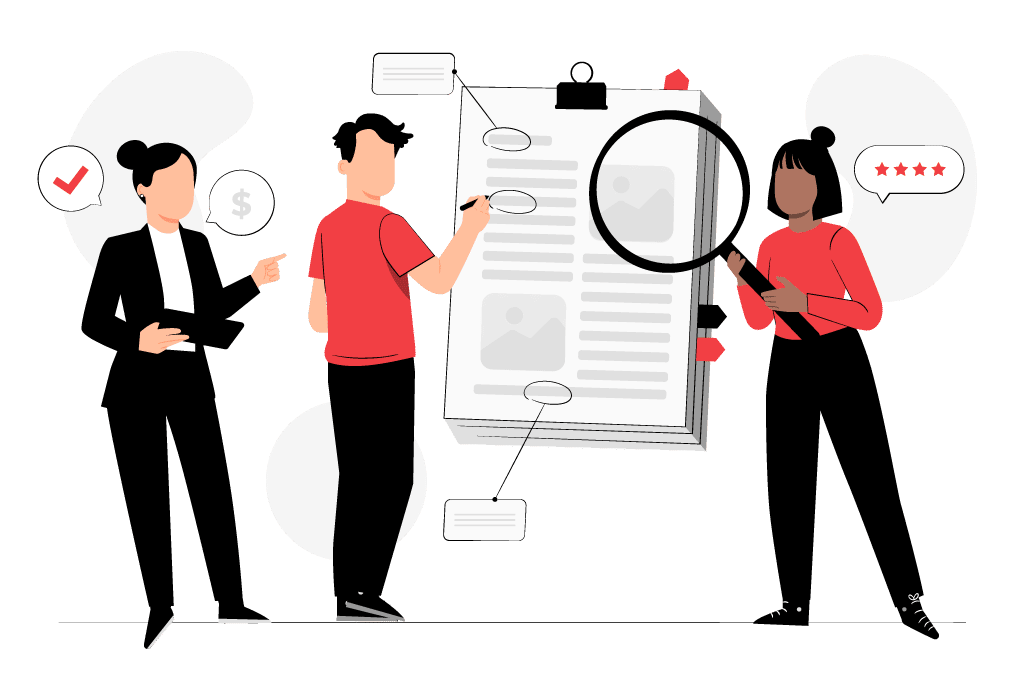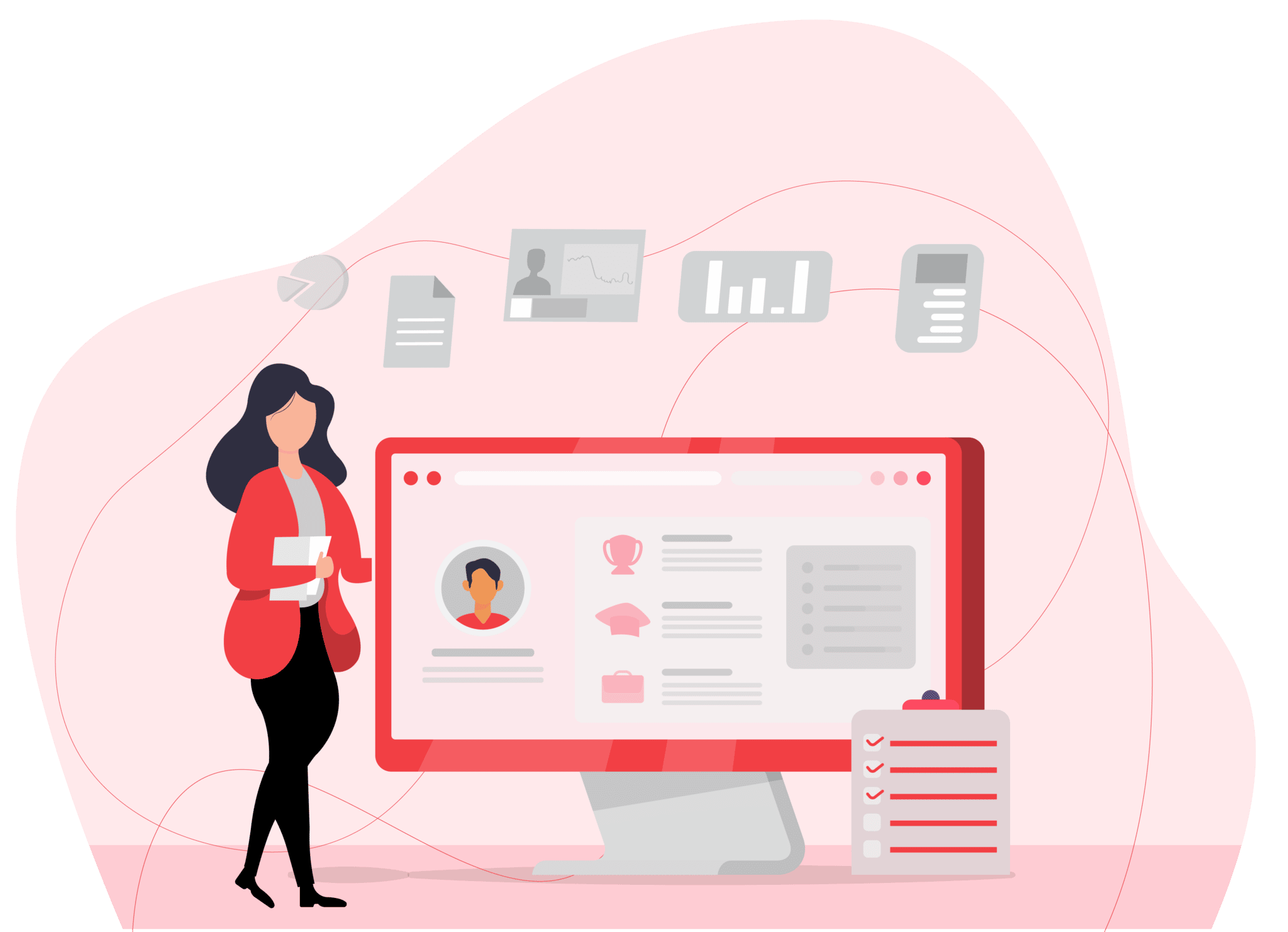In the competitive landscape of talent acquisition, recruiters are constantly seeking innovative ways to identify and hire the best candidates for their organizations. Traditional hiring methods, such as resume reviews and interviews, often fall short in evaluating a candidate’s suitability for a particular role and cultural fit within the company. This is where personality tests come into play.
In this blog post, we will explore the significance of personality tests in the recruitment process, their benefits, and how they can assist recruiters in identifying the best talent.
Understanding the importance of personality tests in recruitment
The complexity of hiring
Recruitment is a multifaceted process that goes beyond the mere matching of skills and qualifications to job requirements. It involves the intricate task of identifying candidates who not only possess the necessary technical abilities but also harmonize with the company’s values, culture, and long-term aspirations. Traditional hiring methods, such as resume screening and interviews, often fall short in assessing these critical aspects of a candidate’s suitability for a role. As a result, organizations may inadvertently make hiring decisions that lead to costly mismatches and, consequently, high employee turnover rates.
In today’s highly competitive job market, companies are recognizing the significance of evaluating candidates beyond their qualifications. The ability to identify individuals who not only have the right skills but also align with the company’s ethos is paramount for building a cohesive and high-performing team. Neglecting these essential cultural and values-based considerations can have long-term repercussions on team dynamics and organizational success.
To address these complexities, recruiters are increasingly turning to innovative solutions such as personality tests. These tests provide a structured and systematic approach to assessing a candidate’s compatibility with the organization’s culture and values, thereby helping recruiters make more informed hiring decisions. The rise of personality tests signifies a shift towards a more holistic evaluation of candidates, acknowledging that technical skills alone are insufficient for long-term success within an organization.
The rise of personality tests
Personality tests have ascended to prominence in the realm of recruitment due to their unique capability to delve deep into a candidate’s psyche, uncovering qualities that are challenging to assess through conventional means. These tests offer valuable insights into a candidate’s personality traits, behavioral tendencies, and cognitive abilities, providing a comprehensive perspective on their potential fit within an organization.
Conventional hiring methods often rely heavily on qualifications and experience, leaving essential aspects of a candidate’s personality and character unexplored. Personality tests fill this gap by offering a structured framework for understanding an individual’s unique disposition. They enable recruiters to gain a more profound understanding of how a candidate is likely to behave, respond to challenges, and interact with colleagues, supervisors, and subordinates.
By evaluating personality traits such as openness, conscientiousness, extraversion, agreeableness, and emotional stability (the Big Five), or by using other established frameworks, recruiters can better predict how candidates will perform in a particular role and how well they will fit into the organization’s culture. These insights empower recruiters to make more informed decisions, ultimately leading to improved hiring outcomes and reduced turnover rates.
In summary, personality tests are gaining prominence in recruitment because they offer a comprehensive understanding of candidates beyond their qualifications, helping organizations make more accurate hiring decisions. These tests provide insights into an individual’s personality traits, behavioral tendencies, and cognitive abilities, which are often overlooked by traditional hiring methods. As recruiters embrace the potential of personality tests, they are better equipped to identify candidates who not only possess the necessary skills but also align with the company’s values and culture, ultimately contributing to the organization’s long-term success.

Benefits of incorporating personality tests in recruitment
Objective evaluation
One of the most significant advantages of incorporating personality tests into the recruitment process is their ability to introduce a level of objectivity that interviews often struggle to achieve. Interviews can be susceptible to biases, both conscious and unconscious, and influenced by initial impressions. These biases can inadvertently lead to unfair assessments and hiring decisions. In contrast, personality tests provide a standardized and consistent approach to candidate evaluation. Every candidate is assessed using the same criteria and methodology, ensuring a fair and equal assessment process.
By eliminating the variability associated with interviewer biases and first impressions, personality tests contribute to the fairness of the hiring process. This objectivity not only promotes equality among candidates but also enhances the quality of hiring decisions. Recruiters can have greater confidence that their assessments are based on consistent and reliable criteria, ultimately leading to more effective candidate selection.
Predictive accuracy
Personality tests have garnered recognition for their remarkable predictive power when it comes to job performance. By evaluating a candidate’s personality traits and cognitive abilities, recruiters gain valuable insights into their suitability for a particular role. These assessments offer a higher degree of accuracy in predicting how well a candidate will perform in a given position.
Traditional hiring methods, such as interviews and resume screenings, may not provide a comprehensive understanding of a candidate’s potential to excel in a specific role. Personality tests bridge this gap by offering a systematic analysis of key personality traits, such as conscientiousness, emotional stability, and agreeableness. These traits, when aligned with the job’s requirements, provide recruiters with a reliable indicator of a candidate’s potential success.
The predictive accuracy of personality tests equips organizations with a powerful tool to make more informed hiring decisions. By reducing the likelihood of selecting candidates who may struggle in their roles, organizations can enhance their overall workforce quality and productivity, ultimately contributing to improved business outcomes.
Cultural fit assessment
The importance of cultural fit in the workplace cannot be overstated. Candidates who align with an organization’s culture and values are more likely to thrive and contribute positively to the company’s success. Personality tests including the cultural fit assessment can be customized and tailored to assess a candidate’s compatibility with the specific culture and ethos of the organization.
These tests delve into a candidate’s personality traits, behavioral tendencies, and values, allowing recruiters to gauge how well they would integrate into the existing company culture. This alignment is critical for long-term success, as it fosters a more harmonious and productive work environment. Employees who resonate with the organizational culture tend to be more engaged, satisfied, and committed, leading to higher retention rates and increased overall morale.
By utilizing personality tests to assess cultural fit, organizations can reduce the risk of hiring individuals whose values and behaviors do not align with the company’s mission and vision. This, in turn, contributes to a more cohesive and productive work environment where employees are motivated to work towards shared goals.
Reducing turnover
High employee turnover poses a significant challenge for organizations, both in terms of financial costs and the disruption it causes. Personality tests play a pivotal role in addressing this issue by identifying candidates who not only possess the necessary skills for a role but are also likely to remain with the company for an extended period.
Personality tests help recruiters pinpoint candidates whose personality traits and values align with the organization’s culture and job requirements. When candidates are a good fit in terms of both skills and cultural alignment, they are more likely to stay committed to their roles and the organization as a whole. This results in reduced turnover rates, which, in turn, leads to cost savings associated with recruitment, onboarding, and training.
By leveraging personality tests to identify candidates with a higher likelihood of long-term commitment, organizations can enhance stability within their workforce. Reduced turnover not only translates into financial benefits but also fosters a more consistent and experienced team, ultimately contributing to improved organizational performance.
How personality tests work in recruitment
Choosing the right test
In the realm of personality assessments, recruiters are presented with a diverse array of tests, each designed to probe different facets of an individual’s personality. The critical task for recruiters is to meticulously select the test that best aligns with the precise requirements of the job and the prevailing organizational culture. This decision is pivotal as the chosen test will shape the insights garnered about the candidate. Some well-known personality tests employed in recruitment include the Myers-Briggs Type Indicator (MBTI), the Big Five Personality Traits, and the DISC assessment.
Recruiters must evaluate the unique demands of the role they are hiring for. For instance, a sales position might benefit from assessing a candidate’s extraversion and emotional intelligence, while a data analyst role might emphasize traits like conscientiousness and attention to detail. Additionally, considering the organization’s values and culture is essential to ensure that the candidate not only possesses the requisite skills but also embodies the desired cultural fit.
The choice of the right test empowers recruiters to delve into the candidate’s personality in a manner tailored to the role and organizational context, ultimately contributing to a more informed hiring decision.
Administering the test
The process of administering personality tests has evolved with the advent of online platforms, making it versatile and efficient. These tests can be incorporated at various stages of the recruitment process, depending on organizational preferences. Some companies choose to include them as part of the initial application, allowing candidates to complete the assessment alongside their application submissions. Others opt to administer the tests during the interview phase, where candidates may undertake the assessment in a controlled environment.
Online platforms provide recruiters with the convenience of administering and scoring personality tests swiftly, reducing administrative overhead and streamlining the evaluation process. These platforms often offer secure and user-friendly interfaces, ensuring a seamless experience for both candidates and recruiters.
The flexibility in when and how personality tests are administered allows organizations to tailor their recruitment processes to align with their specific needs and priorities, enhancing the overall efficiency of candidate evaluation.
Interpreting results
Once candidates have undergone the personality test, the next crucial step is the interpretation of the results. This task should ideally be carried out by trained professionals or using specialized software designed for this purpose. The interpretation process focuses on deciphering how the candidate’s personality traits relate to the specific job requirements and the company’s culture.
Trained interpreters possess the expertise to extract meaningful insights from the test results, translating them into actionable information for recruiters and hiring managers. They can identify the strengths and potential areas of development in candidates, aligning these findings with the nuances of the job role.
The interpretation of results offers a valuable bridge between the data gathered through the personality test and the practical implications for hiring decisions. It ensures that recruiters can make informed choices based on a comprehensive understanding of the candidate’s personality profile.
Combining data sources
While personality tests provide valuable and insightful data, it’s essential to recognize that they should not serve as the sole basis for hiring decisions. To make well-rounded evaluations of a candidate’s suitability for a role, recruiters should integrate the results of personality tests with data from other sources. These may include insights from interviews, reference checks, skills assessments, and past work performance records.
By combining multiple data sources, recruiters gain a more comprehensive and holistic view of each candidate. This comprehensive approach helps mitigate the limitations of any single assessment method and reduces the risk of making biased or incomplete hiring decisions. It also allows recruiters to cross-verify the consistency of information provided by candidates and assess their alignment with the job requirements and company culture from different angles.
In essence, combining data sources in the evaluation process creates a more robust foundation for selecting the right talent, enhancing the likelihood of successful and sustainable hires while reducing the chances of costly mismatches.

Challenges and considerations in using personality tests
Ethical concerns
The utilization of personality tests in the recruitment process introduces a set of ethical considerations that cannot be overlooked. Recruiters have a responsibility to ensure that these assessments do not inadvertently discriminate against candidates based on factors such as gender, race, or age. While personality tests are meant to be objective, if they inadvertently favor or disfavor particular demographics, they can perpetuate bias and inequality in hiring practices. To address this concern, it is imperative that personality tests are carefully designed and validated to be free from discriminatory effects.
Furthermore, safeguarding the privacy of candidates’ data is of paramount importance. Recruiters must adhere to stringent data protection protocols to ensure that candidates’ personal information and test results are treated with the utmost confidentiality and used exclusively for their intended purpose. This includes secure storage, limited access, and compliant data handling procedures.
Responsible and ethical use of personality tests not only upholds principles of fairness and equal opportunity but also safeguards candidates’ rights and privacy throughout the recruitment process.
Test validity and reliability
Not all personality tests are created equal, and the quality of the assessment tools employed in recruitment is a critical factor. It is essential to select tests that have been rigorously validated and proven to be reliable predictors of job performance. Validity and reliability are foundational principles in psychometrics that ensure the accuracy and consistency of test results.
Validated personality tests have undergone extensive research to demonstrate their ability to measure what they purport to measure – in this case, relevant personality traits and attributes. Reliability ensures that the test consistently yields consistent results when administered to the same individual under similar conditions.
Choosing poorly designed or unvalidated personality tests can lead to inaccurate results and misguided hiring decisions. The consequences of relying on such tests can range from hiring candidates who do not possess the necessary traits for success to missing out on qualified individuals who are overlooked due to flawed assessments.
To mitigate this risk, recruiters should thoroughly research and select personality tests with established psychometric properties, ensuring that they provide trustworthy and meaningful insights into candidates’ suitability for the job.
Avoiding stereotyping
Personality tests, while valuable tools, must be applied with caution to avoid stereotyping candidates. Every individual is unique, and their personalities are shaped by a complex interplay of factors. While personality assessments can provide valuable insights into a candidate’s traits and tendencies, they should never be used to make sweeping generalizations about a candidate’s abilities or potential.
Recruiters must be mindful of the limitations of personality tests and refrain from making hasty judgments based solely on test results. It is crucial to recognize that a single assessment, no matter how comprehensive, cannot capture the full spectrum of a candidate’s capabilities and potential contributions to an organization.
To avoid stereotyping, recruiters should adopt a nuanced approach that considers personality test results in conjunction with other data sources, such as interviews, references, and skills assessments. This comprehensive evaluation allows for a more accurate and well-rounded assessment of a candidate’s fit for the role and the organization.
Balancing quantitative and qualitative data
In the recruitment process, striking the right balance between quantitative data from personality tests and qualitative information from interviews and references is paramount for making well-informed hiring decisions. Personality tests provide valuable quantitative data that can offer insights into a candidate’s personality traits and behavioral tendencies.
However, relying solely on quantitative data can be limiting, as it may not capture the nuanced qualities that can make a candidate an ideal fit for a particular role or organization. Qualitative data, derived from interviews and references, offers a deeper understanding of a candidate’s interpersonal skills, communication abilities, and cultural compatibility.
Balancing these two types of data allows recruiters to create a more comprehensive and accurate profile of each candidate. It enables a holistic assessment that considers not only a candidate’s personality traits but also their ability to communicate effectively, collaborate with colleagues, and adapt to the organization’s culture.
Ultimately, successful hiring decisions are often the result of synthesizing both quantitative and qualitative data, ensuring that candidates are not only technically proficient but also possess the interpersonal skills and cultural alignment necessary for success within the organization.
Implementing personality tests effectively
Training and certification
To use personality tests effectively, recruiters should undergo training and certification in test administration and interpretation. This ensures that the tests are administered accurately and ethically, and the results are interpreted correctly.
Customization for each role
Not all roles within an organization require the same personality traits or cognitive abilities. Recruiters should customize the choice of personality tests and assessment criteria based on the specific requirements of each job position.
Feedback and continuous improvement
Feedback from candidates who undergo personality tests can provide valuable insights into the effectiveness of the recruitment process. Recruiters should use this feedback to continuously improve their use of personality tests and enhance the overall candidate experience.
Legal compliance
Recruiters must stay up-to-date with the legal requirements related to personality testing in their jurisdiction. Compliance with laws and regulations ensures that the use of personality tests in recruitment is lawful and fair.
Conclusion
In the ever-evolving world of talent acquisition, personality tests have emerged as a valuable tool for recruiters seeking to find the best talent for their organizations. These tests offer objective evaluation, predictive accuracy, and cultural fit assessment, ultimately leading to reduced turnover and improved hiring outcomes.
However, it’s essential to use personality tests responsibly, taking into account ethical considerations and the need for a balanced approach that combines quantitative and qualitative data. When implemented effectively, personality tests can significantly enhance the recruitment process, helping organizations build stronger and more productive teams. Recruiters who embrace these tools are better equipped to navigate the challenges of modern hiring and secure top talent for their organizations.
Ready to enhance your recruitment process with cutting-edge assessments? Explore Testlify, our powerful talent assessment tool, to make data-driven hiring decisions. Unlock a new era of recruiting success!








